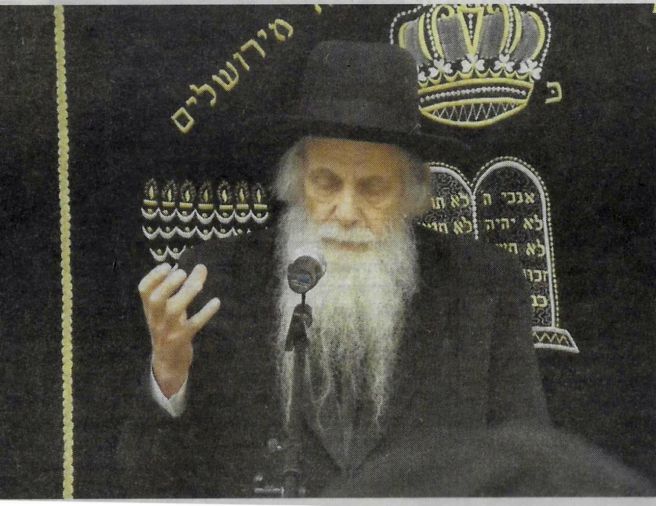
All of us experience spiritual elevation during these days but the evil inclination deceives us with the thought that "last year I also wanted to improve, but I didn't change. Why should this year be different?"
One should know that this argument is false, says HaRav Zev Kahan. Without Rosh Hashonoh and Yom Kippur, we wouldn't be part of what we are today!
"And You gave us, with love, the Yom Hazikoron." The Yomim Noraim are a gift from Hashem to all of Jewry, with love. There can be many levels but the attempt of the yetzer to convince us that no impact has been made, is a total lie. But neither does this absolve us from making an effort in the wake of the arousing which we feel and seeking what we can do to strengthen ourselves in Elul.
The Mashgiach HaRav Yechezkel Levenstein used to say in Elul: "The first thing is to grab whatever we can."
We surely believe that the Rosh Hashonoh judgment involves the merits we have accrued, which indicates that we must strive to increase their number.
The first suggestion is to increase Torah study, which is the greatest merit of all. A danger in the judgment is one's indifference. But when we are cognizant and vigilant of the upcoming trial, it already arouses Heavenly compassion towards us.
Thus our goal during this period is to be aware and relate to the judgment and to gather as many merits as we can to show how sincere we are, while also indicating that we are fearful of the terrible punishment in disregarding the importance of the judgment.
What kind of merits are we supposed to 'grab'?
HaRav Kahan: There are plenty of merits available in one's daily life. For example: Hashem has given us the mitzvah of prayer which, according to the Rambam, is an express mitzvah from the Torah.
There are two things we must ask for each day: livelihood and good health. These are our Torah obligations — our needs in this world — with regard to prayer which we encounter in Refoeinu and Boreich oleinu. It is our 'endeavor', our 'work', with regard to prayer, whose purpose is that we acknowledge Hashem as the Provider of all of our needs.
Chazal arranged a large introduction to the Shemoneh Esrei: Pesukei Dezimroh. HaRav Asher Kalman Baron, Mashgiach of Yeshiva Ponovezh in Lithuania, used to say that it resembled a Mussar session, which was much more than a text printed in the siddur. Rather, it was an introduction and preparation in emunah which should be said with great concentration and feeling.
This is why one must precede the Shemoneh esrei with patience and attention. But if one arrives late and says everything at headlong speed, one defeats the purpose of this preface and preparation. We must concentrate, patiently, while saying Ashrei so that we feel fortified and ennobled in emunah.
Another place to strengthen emunah is in Krias Shema. This is not just a recitation to ourselves, but is acceptance in the presence of Hashem. The brochos that we say daily help us to live constantly with closeness to Hashem throughout the day.




